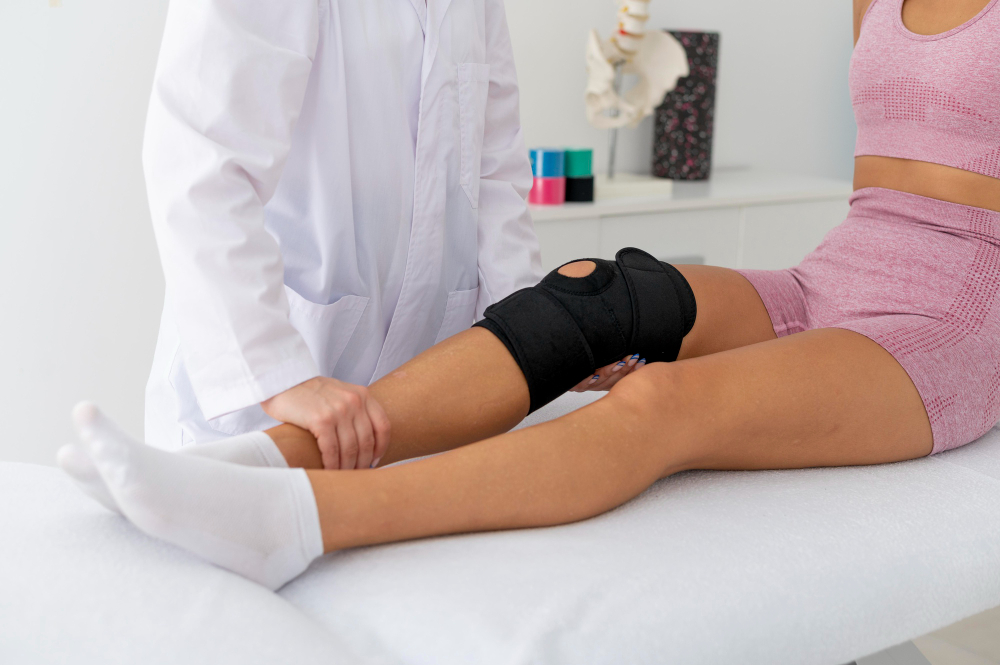
Knee surgery can be a daunting prospect, and understanding the recovery process is crucial to ensure a smooth return to your daily activities. Whether you've undergone a total knee replacement or another type of knee surgery, knowing what to expect during recovery can ease your concerns and help you plan for success. If you're in Deland, FL, and looking for a skilled orthopedic surgeon, Central Florida Bone & Joint Institute is here to provide expert care and guidance.
Understanding Knee Surgery Recovery
The First 24 Hours
The first 24 hours after knee surgery are critical for setting the stage for your recovery. Immediately following the procedure, you'll be taken to a recovery room where medical staff will monitor your vital signs and manage pain. Expect to have a bandage or dressing on your knee, possibly accompanied by a brace or splint to immobilize the joint.
Key Points to Remember
- Pain management will be a top priority; don't hesitate to communicate with your healthcare team about discomfort levels.
- Early movement is encouraged to prevent complications like blood clots. You may start with gentle ankle pumps or foot circles.
- Work closely with your nurses and therapists to ensure you're comfortable and understand the initial steps of your recovery plan.
Hospital Discharge and Initial Home Care
Most patients are discharged within a day or two, depending on the complexity of the surgery and your overall health. Upon returning home, it's essential to follow your surgeon's instructions carefully.
Home Care Tips
- Keep it Clean: Follow your surgeon's guidance regarding incision care to prevent infections.
- Ice and Elevate: Use ice packs to reduce swelling and elevate your leg to minimize fluid buildup.
- Pain Management: Continue prescribed medications and consider over-the-counter options, such as acetaminophen, if needed.
Physical Therapy and Rehabilitation
Physical therapy plays a pivotal role in knee surgery recovery. Your physical therapist will design a personalized exercise program to strengthen muscles, improve flexibility, and regain range of motion.
What to Expect
- Regular Sessions: Attend physical therapy sessions as scheduled, which may start with gentle exercises and progress to more challenging routines.
- At-Home Exercises: Be diligent about performing prescribed exercises at home to maximize rehabilitation benefits.
- Patience is Key: Progress may be gradual, but consistency and dedication will yield positive results over time.
Managing Expectations for Full Recovery
Recovery timelines vary depending on the type of knee surgery and individual factors like age and physical condition. Most patients see significant improvements around the six-week mark, with full recovery taking anywhere from three to six months.
Factors Influencing Recovery
- Type of Surgery: Total knee replacements generally have longer recovery times than minor arthroscopic procedures.
- Commitment to Rehab: Adhering to your physical therapy regimen significantly impacts recovery speed and outcomes.
- Lifestyle Adjustments: Maintaining a healthy weight and staying active can enhance your knee's long-term function.
Tips for a Smooth Recovery
- Stay Informed: Understand your surgery details, recovery expectations, and communicate with your healthcare team.
- Create a Support System: Enlist family and friends for help with everyday tasks during the early stages of recovery.
- Focus on Nutrition: A balanced diet rich in protein, vitamins, and minerals supports healing, reduces inflammation, and boosts energy levels.
- Listen to Your Body: Avoid pushing yourself too hard and rest when needed; overexertion can lead to setbacks.
- Track Your Progress: Keep a journal of your recovery milestones to stay motivated and share updates with your surgeon.
- Stay Positive: Mental outlook can influence physical recovery. Engage in relaxation techniques, meditation, or hobbies that bring joy.
When to Contact Your Orthopedic Surgeon
Knowing when to reach out to your orthopedic surgeon is vital to ensure a safe and effective recovery. While some discomfort and swelling are normal, certain symptoms require immediate attention.
Red Flags to Watch For
- Severe Pain unrelieved by medication.
- Persistent Swelling or redness around the incision site.
- Fever or chills, indicating a possible infection.
- Sudden Loss of Function or inability to move the knee.
If you experience any of these symptoms, don't delay in contacting your knee surgeon. If you need an orthopedic surgeon in Deland, FL, the team at Central Florida Bone & Joint Institute is ready to address all of your concerns and provide comprehensive care.
In conclusion, recovering from knee surgery requires patience, commitment, and careful adherence to medical advice. By understanding the recovery process and working closely with your healthcare team, you can achieve excellent results and return to the activities you love. For more information on knee surgeries and personalized rehabilitation plans, contact Central Florida Bone & Joint Institute today. Our experienced orthopedic surgeons are dedicated to guiding you every step of the way towards a full and lasting recovery.